MOL-254 Automatic 2 needle Belt-Loop Attaching Machine
The number of stitches to sew a belt-loop can be switched between; 28-, 36- and 42-stitches, and the bartacking size can be easily changed through the operating panel.
Description
The number of stitches and size of bar tacking
The number of stitches to sew a belt-loop can be switched between; 28-, 36-, and 42-stitches, and the bartacking size can be easily changed through the operating panel. What’s more, the user can create his/her original sewing patterns in addition to the standard ones using JUKI’s PGM-20 programming software developed for computer-controlled sewing machines.
The changeover of cutting method between cross-cutting and straight-cutting
The applicable loop width for the cross-cutting device is increased. In this model, both the cross-cutting device and the straight-cutting device can now cut loop up to 20mm width.
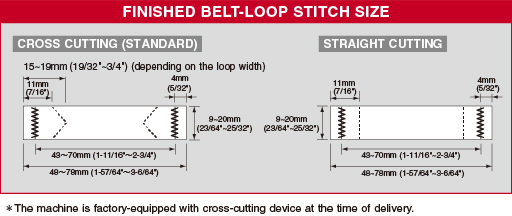
The machine time is 1.2 seconds per belt-loop (with 28 stitches)
The new machine head specifically developed for belt-loop attaching machines runs at a maximum sewing speed of 2,500rpm and is equipped with a direct-drive system that improves start-up performance and shortens sewing time. The belt-loop feeding device is now provided with a halfway standby capability for subsequent belt loops, and its faster belt-loop supply action shortens the time required for supplying belt loops and helps speed up the machine time to 1.2 seconds per belt loop (with 28 stitches).
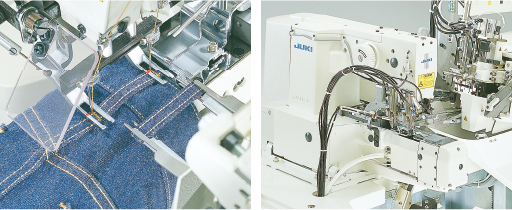
With the improved consistency in belt-loop supply action and re-try capability, the machine down time is substantially reduced
Belt-loops are fed out by the conventional gear-roller feeding mechanism and also drawn out by the new drawing mechanism on the clamp device. Supported by these two mechanisms, the folding fork catches “curled” or “creased” belt-loops every time and supplies them to the head. In addition, the sensor of the clamp device detects the presence/absence of belt-loops. If it detects a faulty belt-loop feed, the clamp device automatically repeats the clamping action. Since the operator doesn’t have to operate the set-back switch, less time is lost.
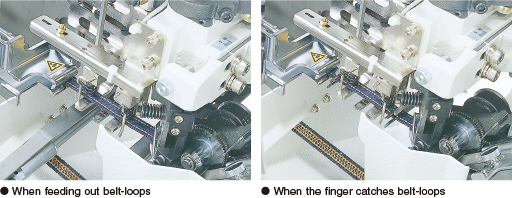
Specification
| Model name | MOL-254 |
|---|---|
| Machine head | Computer-controlled, 2-needle, lockstitch bartacking machine |
| Max. sewing speed | 2,500sti/min* |
| Thread take up | Link type |
| Needle bar stroke | 45.7mm |
| Thread | Spun thread, cotton thread #50~#30, B33~B46, Nm=120/3~60/3 |
| Needle (at the time of delivery) | DP×17 (#21) #19~#21 |
| Hook | Horizontal-axis 1.8 fold-capacity shuttle hook |
| Lift of the presser foot | 21mm |
| Number of stitches | 28, 36, 42 (selectable on the operating panel) |
| Needle gauge | 43~70mm (1-11/16″~2-3/4″) |
| Bartacking length | 7~22mm (9/32″~55/64″) ‹adjustable in increments of 0.1mm› |
| Bartacking width | 1~3.2mm (3/64″~1/8″) ‹adjustable in increments of 0.1mm› |
| Number of pieces of bar tacking data that can be stored in memory | 9 (99 patterns if optional EP-ROM is added) |
| Belt-loop width | 9~20mm (23/64″~25/32″) |
| Finished length of belt-loop | 48~78mm (1-57/64″~3-5/64″) |
| Machine time | 1.2 sec./belt-loop (28 stitch) |
| Positioning of the front hook | Driven by motor (the distance between the hook can be established in increments of 0.01mm) |
| Bobbin winder | Electric type (provided as standard) |
| Lubrication | Centralized oil wick lubrication (machine head) |
| Lubricating oil | JUKI New Defrix Oil No.2 (equivalent to ISO VG32) |
| Power requirement and power consumption | Single-phase, 3-phase 200~240V/350VA |
| Compressed air and air consumption | 0.5MPa (5kgf/cm²), 32Nl/min |
| Total weight | 230kg |
| Dimensions | 1,200mm (W)×800mm (D)×1,350mm (H: in its lowest end) |
| Height of the top surface of the throat plate as from the floor surface | 920~1,250mm (provided with the adjustable stand capability) |
*”sti/min” stands for “Stitches per Minute.”


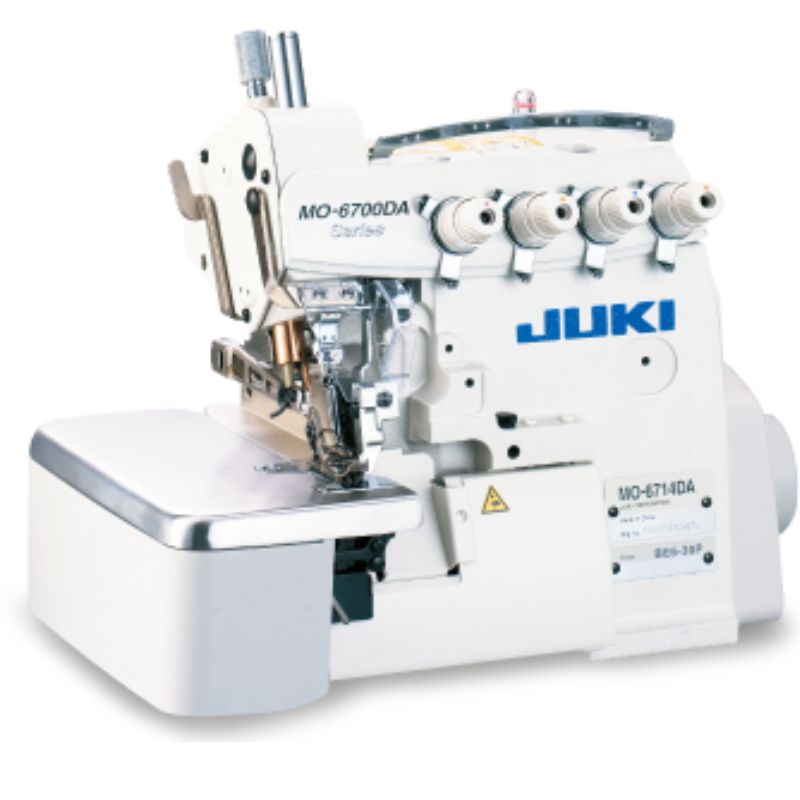
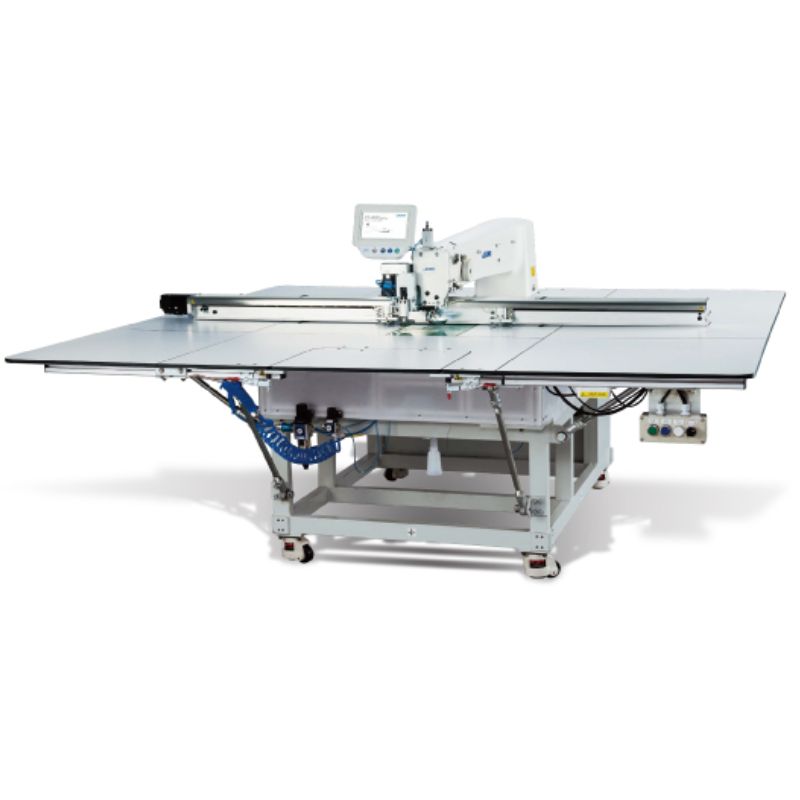

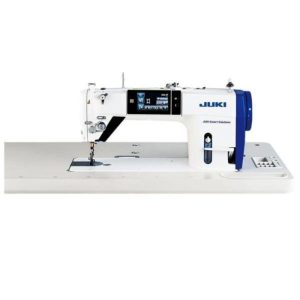
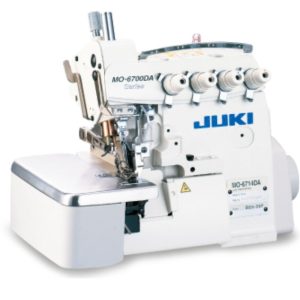
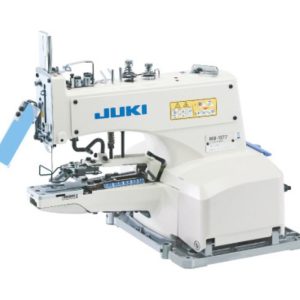
Reviews
There are no reviews yet.